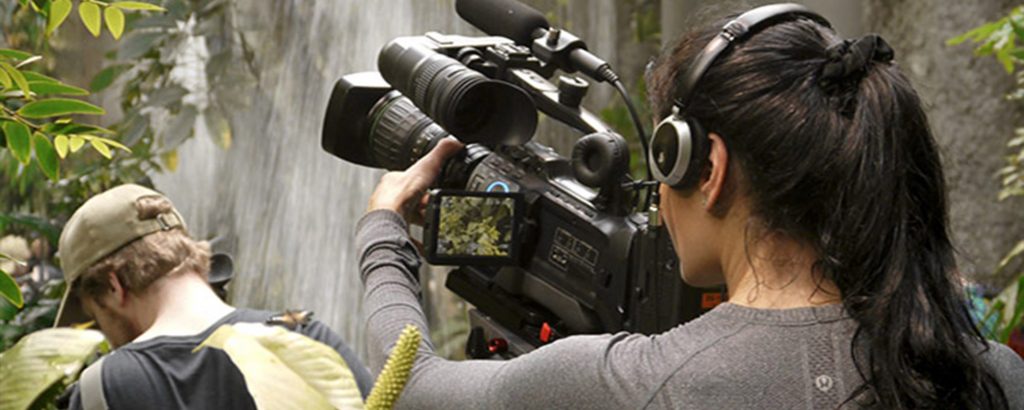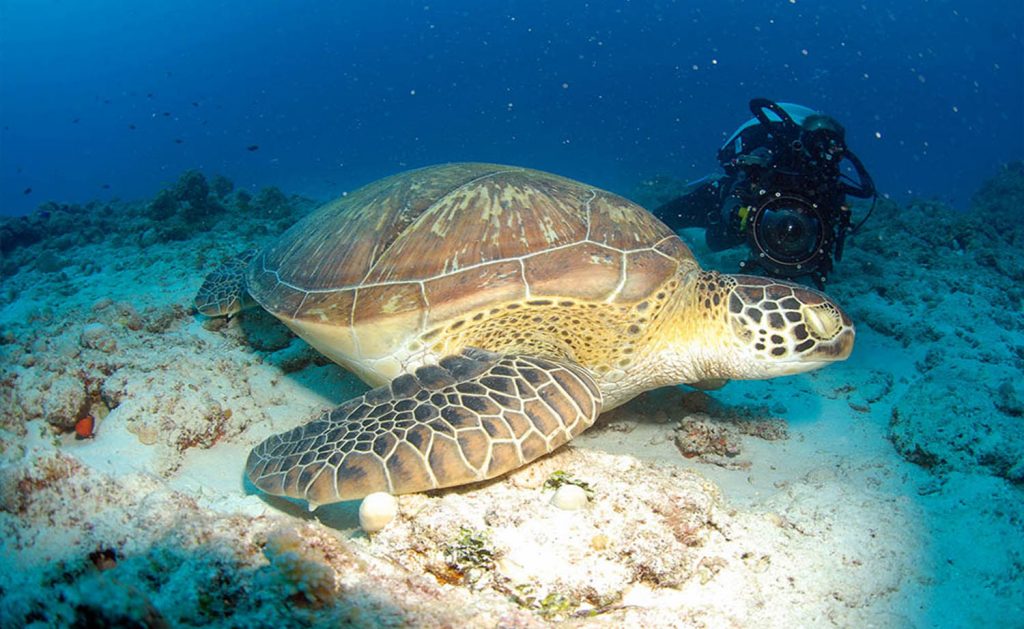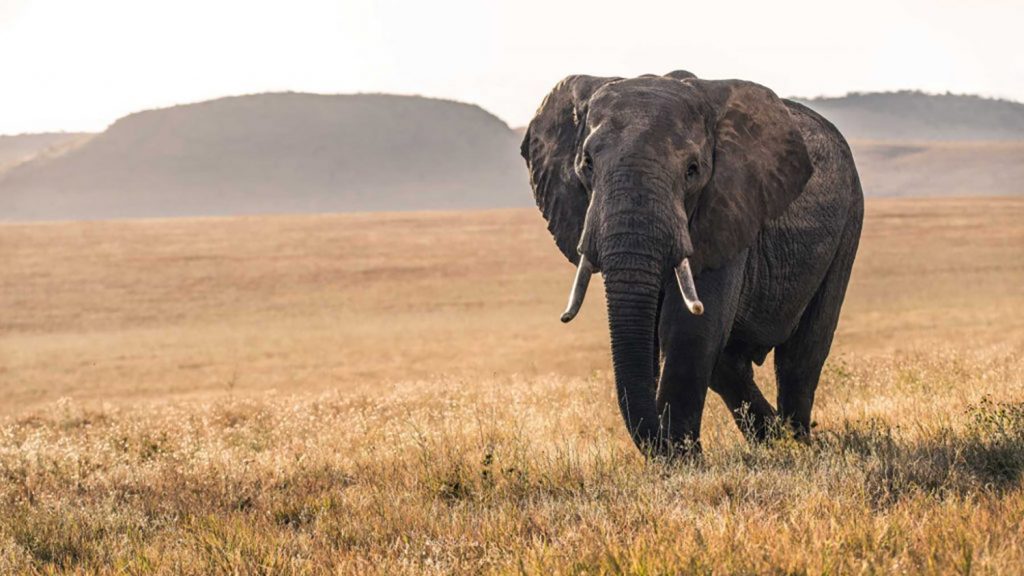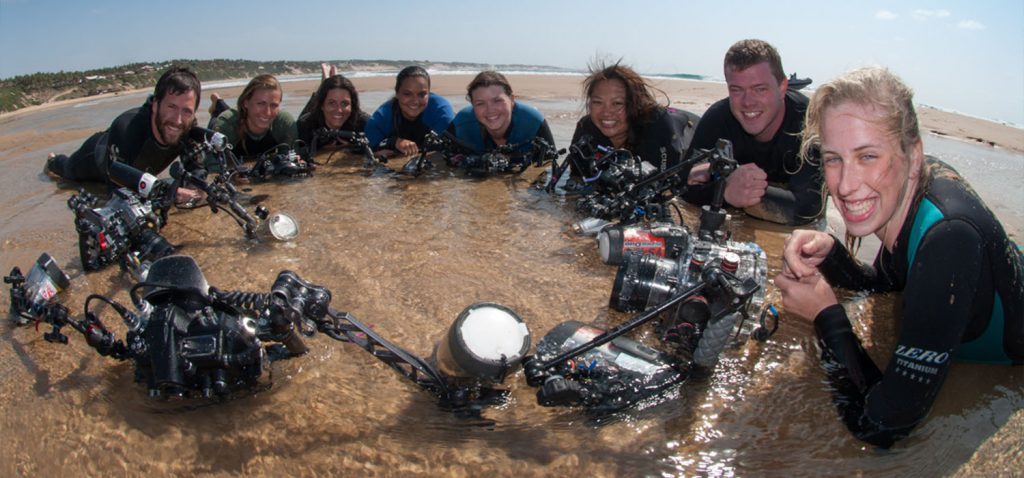The Shark Research Unit’s great white shark research internship allows people from all walks of life to participate in shark research, education, conservation, and edu-tourism in Mossel Bay, South Africa.
Our great white shark research internship offers a diverse itinerary to suit the expectations of a broad cross-section of participants. Our great white shark internship provides an experiential approach to observing and learning about great white sharks and other species in the area.
The ultimate goals of the great white shark research internship are education, public awareness, the advancement of shark science, and the conservation of all shark species. We hope you will bring your skills and passion for helping to understand and conserve these incredible animals!
Program highlights
Experience the thrill of a lifetime with our unparalleled Great White Shark expeditions in the captivating setting of Mossel Bay, South Africa. Immerse yourself in the world of these majestic creatures through an array of unforgettable activities meticulously designed to offer you an in-depth understanding of their behavior and habitat.
Embark on exhilarating cage diving ventures that bring you face-to-face with these awe-inspiring predators. Capture their magnificence through both photographic and underwater video recordings, enabling you to preserve the memories forever. Engage in meticulous behavioral observation studies, gaining insights into their natural instincts and interactions.
Venturing beyond Mossel Bay, our expeditions take you to Plettenberg Bay’s Robberg Reserve. Here, you’ll participate in a bird’s-eye scientific survey, witnessing the great white sharks as they patrol and hunt around the dynamic seal colony. This vantage point offers a unique perspective to comprehend their strategic prowess in their natural hunting grounds.
For those seeking even closer encounters, our SCUBA or free diving expeditions provide the chance to interact with shy sharks and catsharks. Feel the rush as you navigate the underwater realm they call home, forging a connection with these lesser-known but equally fascinating species.
But our expeditions go beyond mere adventure; we are committed to conservation and education. Contribute meaningfully by dedicating two days to volunteer at the SAPREC bird rehabilitation center, actively participating in the rehabilitation of precious seabirds and playing a role in preserving the delicate marine ecosystem.
To further enrich your experience, we offer an Introduction to Free Diving course, accompanied by immersive practical sessions. Develop newfound skills that connect you even more profoundly to the underwater world.
Join us in Mossel Bay for an expedition that transcends ordinary adventure. Gain insight, preserve memories, contribute to conservation, and forge an unbreakable bond with the ocean’s most magnificent inhabitants. Your journey of discovery and connection awaits.

Orcas won’t ruin your internship training program.
The occurrence of orcas attacking great white sharks at Mossel Bay can lead to a temporary displacement of the local shark population. In such an event, our internship program has contingencies in place to ensure that our research and edu-tourism expeditions can continue smoothly. If such an event occurs during your internship, we will relocate to our research facility at Aliwal Shoal, where we will continue conducting expeditions on sand tiger sharks, blacktip sharks, and tiger sharks, until the great white sharks return to Mossel Bay.
What do I get out of the program?
The course is aimed at assisting in the development of aspiring wildlife filmmakers. Students on the course will spend a month designing, writing, filming and editing their own five-minute wildlife documentary based on the animals of one of Africa’s most beautiful and well-stocked game reserves. At the end of the course, students will present their film to students and staff of Africa Media and walk away with a showpiece that can be used to break into the demanding wildlife filmmaking industry.
How long can I participate?
The program consists of both on-site and off-site work.
Prior to arrival in South Africa, participants are required to complete a two week online eLearning program aimed at grounding you in the theoretical skills required to enable you to make a meaningful contribution to the program.
Onsite, participants can participate for a minimum period of two weeks and a maximum period of three months.
What months does the internship run?
We run most months from February to November, unless something unusual occurs and we cancel a month.
- 1 – 28 February
- 1 – 28 March
- 1 – 28 April
- 1- 28 May
- 1 – 28 June
- 1 – 28 July
- 1 – 28 August
- 1 – 28 September
- 1 – 28 October
- 1 – 28 November
What does the course fee include and exclude?
What does the course fee include?
Accommodation, 3 meals per day (light lunch), expert instruction, 9 days filming and living on game reserve, use of broadcast quality HD video cameras, use of professional audio gear, use of a professional drone, filming expeditions to Monkeyland and Birds of Eden, travel to/from George Airport or the bus depot, internet.
What does the course fee exclude?
Additional short courses, laundry service, tourism excursions, extra food and beverages, alcoholic beverages, international and domestic flights, and game ranger tips.
If you choose to arrive early (before the 1st) or depart late (after the 28th) then we will ask $30 USD/day to cover additional accommodation. Food is not included on additional days.
Can I cancel once my place is confirmed?
Due to the number of applications received and limited places, we unfortunately do not accept all applying students. Therefore, we do not welcome cancellations or date changes after the final confirmation has been completed. Please make sure that the dates you indicate in your application form suit your own schedule/budget before applying.
We request that a non-refundable $750 USD deposit is paid within 14 days of being accepted into the program as confirmation. The remaining fee must be paid in full 30 days prior to arrival in South Africa.
Do I require a work / volunteer VISA?
No. You will not be employed by Africa Media nor paid. On this course, you are entitled to enter on a temporary visitor’s permit (e.g. tourism permit). Tourist visas are usually issued for three months/90 days upon entry to South Africa. However, we do recommend that you contact the South African Embassy or Consulate in your country and confirm this fact. If your application period is for a period longer than three months, or if you plan to travel in South Africa prior to or after the course for a period extending 90 days, you will have to apply for a volunteer VISA application through your home embassy.
Where will I be staying?
Your home for the month will be in the beautiful town of Mossel Bay, South Africa. (Africa Media address – 182 Aalwyn Way, Aalwyndal, Mossel Bay, 6520)
If Orca have chased off Mossel Bay’s great white sharks, we will relocate to Durbans Aliwal Shoal for 2 – 3 weeks. During this period your address will be 34 Egerton Rd, Free4dom Park, Scottburgh, South Africa
What information do I need to make my travel arrangements?
When it comes to support, we ensure that each participant is provided with unparalleled, 360 degree support, from your initial contact with the Shark Research Unit, all the way through your program, and even after, as you become part of the SRU Alumni Team.
As part of this promise, we will ensure that one of our dedicated staff will be available to meet you at George airport or the Mossel Bay bus station. We also set up a Whatsapp group to help with managing airport arrivals and assist you during your travel. We will arrange with you prior to your departure that, should you arrive in the agreed upon pick up window, a member of our staff will be there to welcome you, easily identifiable in a Shark Research Unit t-shirt and wearing a friendly smile. This means there will be someone there to greet you as you land, and from there you will be transported to the SRU base base to start your adventure and meet the rest of your team.
What are the arrival and departure dates?
Pickups and drop offs will be organized by Africa Media for you on the 1st day of the month (for arrivals) and the 28th of the month (for departures).
The program begins with paperwork and orientation on the 1st of the month. There is no need to arrive prior to the 1st; however, arriving earlier in the day is preferable, as it gives you some time to settle in before the course begins.
You can schedule your departure for any time on the 28th.
Insurance - do I need extra insurance?
When you are accepted into this internship program, you will have to sign liability, copyright documents, as well an agreement that you are knowingly partaking in potentially dangerous activities. You will not be covered for accidents, breakages, theft or illnesses, so please do organize your own medical and travel insurances. Chances that you will be injured by a shark are very slim if you follow the safety guidelines, and do not try anything foolish of which we would not approve. However, you will be working in an ocean environment which can result in accidents. So it is important to be covered in case of an emergency or accident. Be sure to have an insurance cover for your entire stay in Southern Africa.
What do I need to bring?
If you are getting ready to pack, here is a rough packing list of items you should consider bringing.
Clothing
- Work clothes. Bring what you are comfortable in, but ensure that you have warm, strong work clothing of neutral colours, solid work shoes such as hiking boots or trainers, a good sun hat with a wide brim and a warm hat/beanie. Gloves can be helpful for early mornings. Bring a tracksuit or something similar to lounge around in during the evenings, which can get cold. Also, face buffs help keep off the cold in the evenings.
- Social clothes. Mossel Bay is a small town, so social clothing should reflect a casual, non-formal style.
- A swimming costume.
Video and electronic gear
You are more than welcome to bring any personal videography or photographic equipment, however, this is totally optional.
Miscellaneous
- Covid negative test results
- Toiletries & strong sunscreen (there are also plenty of shops to purchase from).
- Prescription medication.
- Passport & photocopy of passport.
- Bank cards (inform your bank of your travels).
- Spare cash.
- Phone & cables.
- Accommodation address – 182 Aalwyn Way, Aalwyndal, Mossel Bay.
do I need extra money?
We offer optional weekend trips/activities for all students and interns. These activities cover a wide range of interests, and costs vary. Cash is required for these bookings. You may bring rands with you, but there are also ATMs nearby. Please note you do not have to go on ANY of these extra trips. This is simply for your information should you wish to participate.
Can I get my meds?
South Africa is far from Malaria areas, and there are no strange African diseases that you could pick up (that is if you respect the same safety rules as anywhere else in the world).
Please ensure that you bring any medication required. If you will require medication while in South Africa, please contact us to ensure that it is available.
Attending the Great White Shark Research Internship Program is an investment in your career. No matter your current expertise, you will be working toward improving your employ-ability by mastering new social skills, gaining further technical expertise, and potentially earning an additional qualifications. We have helped many of our Alumni discover, move toward, and earn their own personal dream jobs, be in in shark research, ecotourism, underwater filmmaking or conservation. Our program includes introductory workshops, ongoing eLearning presentations, as well as on-the-ground support provided by our very own trained scientists.
Photographic Identification
Master the photographic skills required to produce mark-recapture data on a variety of shark species. This includes establishing the camera settings to ensure clean, sharp and valuable identification photographs.
Visual Tags
Train in the skills to safely and ethically place visual ‘mark recapture’ tags on ragged tooth sharks and small endemic shy sharks.
Behavioural Ethograms
Develop and employ behaviour ethograms to understand the behaviour and social interaction of shark species. Including great white sharks, ragged tooth sharks and others.
eDNA Sampling
Learn to conduct and process environmental genetic sampling procedures to detect the diversity and concentration of different shark species in the target area.
Education officer
Develop skills to be an effective education communicator who can inform and entertain tourism guests during shark ecotourism expeditions.
Seabird Rehabilitation
Train in providing care and husbandry of oiled and entangled seabirds at the SANPREC seabird rescue centre.
Program fees
USD2000 – 2 weeks
USD 3300 – 4 weeks
Get Started
I founded this program to inspire and mentor a new generation of wildlife filmmakers. Connect with me to secure your place or learn more about the program.





